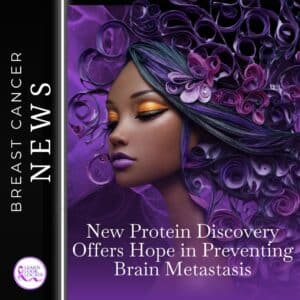
New Protein Discovery Offers Hope in Preventing Breast Cancer Metastasis
Researchers at the University of Cincinnati Cancer Center have made an exciting breakthrough in breast cancer treatment. Led by Jun-Lin Guan, Ph.D., their work uncovers a new protein that could stop the spread of HER2-positive breast cancer, known for its aggressiveness.
Autophagy and Cancer Metastasis
Autophagy, a process cells use to clean out damaged parts, plays a surprising role in cancer spread. The research team’s deep dive reveals how this cellular clean-up could become a target in stopping cancer from moving to other body parts.
Understanding Metastasis
By turning off certain genes through cutting-edge CRISPR technology, the team has identified a key protein, named p47, that stops cancer cells in their tracks. This discovery marks a significant leap towards new ways of preventing cancer spread.
The Promise of p47
p47 not only helps us understand how cancer metastasizes but also opens up new pathways for treatment, aiming to strengthen this protein’s function to keep cancer from spreading. This method reflects the success of therapies like pembrolizumab, which boosts the body’s cancer-fighting mechanisms.
Joining Forces for a Cancer-Free Future
The Cincinnati team is now exploring p47’s full potential as a major player in stopping breast cancer metastasis. Their collaborative research highlights the power of innovative science in turning the tide against cancer.
Learn Look Locate stands as a beacon for those navigating the breast cancer journey, emphasizing the importance of groundbreaking research like the discovery of p47. This platform highlights scientific advances and fosters a community where survivors, patients, and researchers converge to share knowledge, hope, and support. Through sharing stories and the latest in treatment breakthroughs, Learn Look Locate empowers individuals affected by breast cancer with invaluable resources for their journey toward healing.
